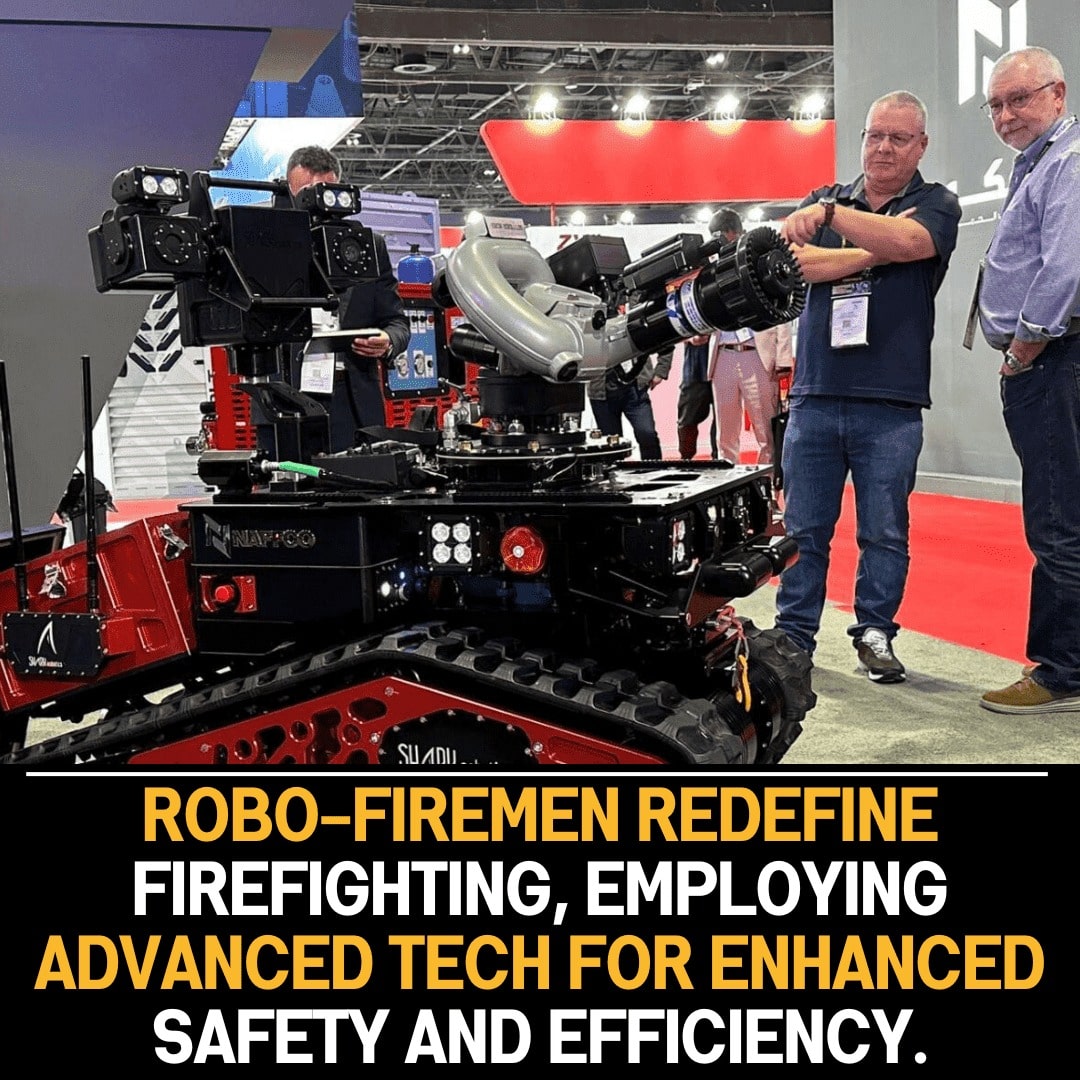In a revolutionary development, robo-firemen are making their mark as a groundbreaking shift in firefighting, leveraging cutting-edge technology to enhance safety and efficiency. These advanced robots signify a paradigm shift from traditional firefighting methods, embracing innovation to deliver superior capabilities in tackling emergencies.
The integration of robotics into firefighting operations heralds a new era in emergency response. Robo-firemen are equipped with state-of-the-art technologies that enable them to navigate complex environments, assess situations, and respond swiftly to fires and other emergencies. This represents a significant leap forward from conventional methods, where human firefighters face inherent risks and limitations.
One key advantage of robo-firemen lies in their ability to access hazardous or hard-to-reach areas with ease. Equipped with sensors and cameras, these robots can gather real-time data, providing invaluable insights to human responders. This not only enhances situational awareness but also aids in strategic decision-making during firefighting operations.
The utilization of cutting-edge technology extends beyond mobility. Robo-firemen are often equipped with advanced firefighting tools such as high-pressure water cannons, thermal imaging cameras, and even capabilities for autonomous fire suppression. This empowers them to intervene in emergencies swiftly and effectively, mitigating potential risks to both life and property.
The paradigm shift represented by robo-firemen also addresses challenges related to human safety. By deploying robots in high-risk scenarios, the need for human firefighters to enter dangerous environments is reduced, minimizing the exposure to life-threatening conditions. This not only enhances the safety of the response team but also allows for a more calculated and efficient approach to firefighting.
The embrace of innovation in firefighting extends to training programs. Fire departments are incorporating simulation-based training for robo-firemen, ensuring that they are adept at handling diverse emergency scenarios. This proactive approach reflects a commitment to optimizing the capabilities of these robots and integrating them seamlessly into existing firefighting protocols.
The introduction of robo-firemen has sparked conversations about the future of emergency response. As technology continues to evolve, there is potential for even more sophisticated and autonomous firefighting robots. The collaboration between human responders and robotic counterparts is expected to become more seamless, offering a comprehensive and dynamic approach to emergency management.
In conclusion, the emergence of robo-firemen marks a transformative shift in firefighting, ushering in an era of enhanced safety and efficiency. By leveraging cutting-edge technology, these advanced robots redefine traditional firefighting methods, offering unparalleled capabilities in navigating complex environments and mitigating risks. As the integration of robotics continues to evolve, the future of firefighting holds the promise of even more sophisticated and effective emergency response systems.









